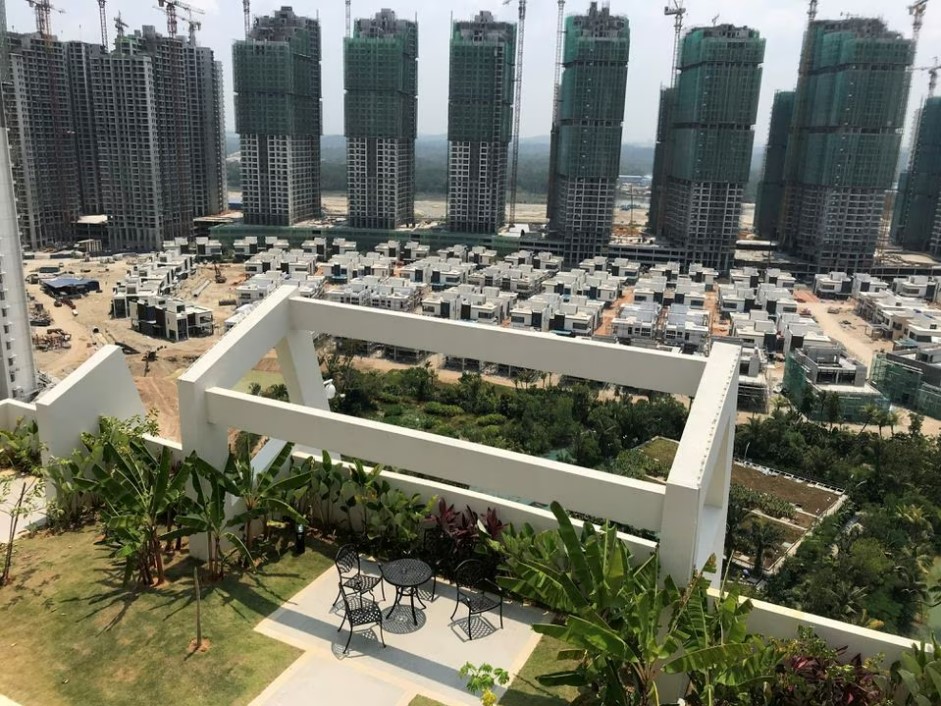
China Country Garden In the ever-evolving landscape of the global property market, one name that has recently garnered significant attention is that of Country Garden, the embattled Chinese property developer. With a looming deadline to pay a substantial $15 million in interest linked to an offshore bond, the company faces yet another critical liquidity test. This comes after having narrowly escaped default on two previous occasions earlier this month.
Country Garden’s financial challenges have not only exacerbated the property sector’s outlook but have also prompted a series of support measures from the Chinese government. In this article, we will delve into the intricate details surrounding Country Garden’s financial predicament, the implications of potential default, and the broader implications for China’s property market.
China Country Garden The Crucial Bond Deadline
The $500-million, 6.15% bond issued by Country Garden is set to mature in September 2025. However, as of the deadline for the coupon payment, which had not been received by late afternoon on Monday, the situation remains uncertain. The bondholders, who have anxiously awaited the payment, are growing increasingly concerned.
If Country Garden fails to make the coupon payment before the grace period concludes in mid-October, a cascade of consequences awaits. According to Sandra Chow, co-head of Asia-Pacific research at CreditSights, any failure to service the bond will trigger cross-default terms, potentially leading to a full-blown default.
China Country Garden Bleak Financial Prospects
The financial prospects for Country Garden are far from promising. The company finds itself in a precarious position due to dwindling cash reserves, just as property sales in China’s economy, the world’s second-largest, continue to languish. The challenging economic climate has made meeting debt obligations an uphill battle for the beleaguered developer.
Country Garden’s financial woes are further highlighted by its considerable debt burden, which stands at 108.7 billion yuan (approximately $14.9 billion) due within the next 12 months. However, the company has only about 101 billion yuan in cash reserves as of June, leaving a significant funding gap.
Dodging Default Twice
Remarkably, Country Garden managed to avoid default on two separate occasions earlier this month. The company secured creditors’ approval to extend payments for an onshore private bond, providing much-needed relief for both the developer and the beleaguered property sector.
In August, the developer narrowly missed coupon payments of $22.5 million tied to two dollar bonds. However, it managed to wire the funds before a grace period concluded later in the month, successfully sidestepping a default.
China Country Garden Uncertain Path Forward
As Country Garden teeters on the brink of default, many creditors and industry experts believe that the company may need to restructure its offshore debt to navigate these treacherous waters. Talks have already begun with prominent law firms, including New York-based Kobre & Kim LLP and London-based Ashurst, to explore potential debt restructuring options.
State Support and Broader Implications
The Chinese government has taken significant steps to support the beleaguered property sector, which constitutes approximately a quarter of the country’s economy. However, concerns persist among investors regarding the effectiveness of these policy measures, the potential impact on the banking system, and the prospect of a prolonged downturn in property sales.
In a move aimed at containing spillover risks, two state-owned financial firms have enlisted to provide operational and management support to the troubled shadow bank Zhongrong International Trust Co. Zhongrong, which traditionally had substantial real estate exposure, missed payments on numerous trust products, causing turmoil in financial markets and raising fears of a broader financial crisis.
Furthermore, China’s financial regulator recently approved the establishment of a new state-backed insurance company, Hai Gang Life, to assume the assets and liabilities of the insurance unit of the defaulting developer China Evergrande Group. Evergrande’s debt default in late 2021 served as a catalyst for a series of defaults among other property developers.
Conclusion
As Country Garden stands on the precipice of default, the fate of this embattled Chinese property developer remains uncertain. The implications of its financial struggles extend far beyond the company itself, casting a shadow over China’s property sector and the broader economy. Only time will tell whether Country Garden can weather the storm and avoid becoming another casualty in the ongoing challenges faced by China’s property market.
FAQs
-
What is the significance of Country Garden’s bond payment deadline?
Country Garden faces a critical bond payment deadline, and failure to meet this obligation could have severe consequences, potentially leading to a default. -
How has the Chinese government supported the property sector amid the crisis?
The Chinese government has introduced various support measures to revive the property sector, which accounts for a significant portion of the country’s economy. - What are the broader implications of Country Garden’s financial challenges? Country Garden’s struggles have raised concerns about the overall health of China’s property market and the potential spillover effects on the banking system.
-
What steps has Country Garden taken to avoid default in the past?
Country Garden has secured creditors’ approval to extend payments on some bonds and successfully met coupon payments just before grace periods expired. -
How has the Evergrande Group’s debt default affected the property sector in China?
Evergrande’s debt default in 2021 triggered a series of defaults among other property developers, contributing to the ongoing challenges in the sector.
